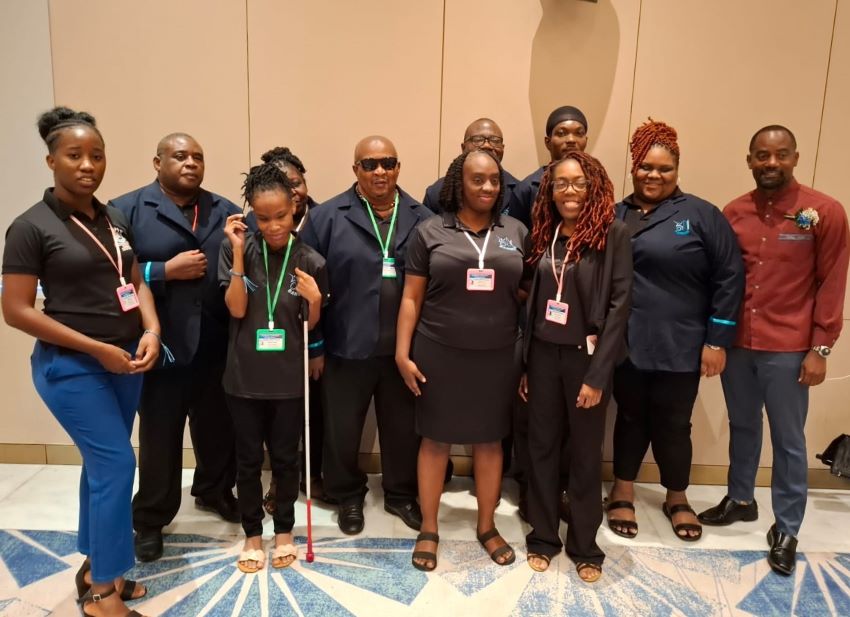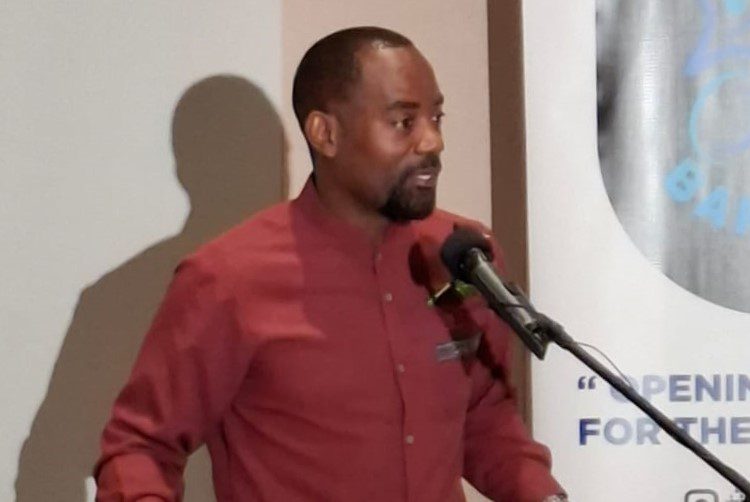
Barbados must seek to transform its policies to include persons with disabilities in matters relating to work, transportation, and education.
Minister of People Empowerment and Elder Affairs, Kirk Humphrey, made these remarks as he addressed the Leadership and Training Retreat, hosted by the Barbados National Organisation of the Disabled (BARNOD) Inc., at the Wyndham Grand Barbados Sam Lords Castle Resort, Long Bay, St. Philip.
He stated that there is a bias “entrenched in our systems and institutions” where the hiring of persons, who are qualified in most cases, does not apply to persons with disabilities.
While focusing on the challenges with education throughout the disabled community, the People Empowerment Minister believes that there must be an education system that “sees you, hears you, and feels you”.
“What I heard during the course of my conversations over the last many months is that many persons with disabilities are not seen, felt or heard, and that, in fact, in our school system persons with disabilities are often discriminated against, and therefore, it is highly unlikely that if we’re saying we’re hiring persons with the adequate skills and saying that is fair, it is highly unlikely that will not be persons in this community. [If] that is going to be the case, then we have to fix the education system.”
Minister Humphrey pointed out that there are also difficulties faced where transportation is concerned, where persons with disabilities are left at home, or the parents of persons with disabilities cannot get their children to school. He suggested that the issue of transportation must also be addressed.
“You can’t learn if you can’t get to school, and so we have to fix the transportation system, and all these things came up very clearly in the policy. If it is that we want to say that we’re going to level the playing field and give people who have the qualifications the jobs, we have to do everything to make sure people have access to education,” he said.
While referring to the draft legislation for the National Policy for Persons with Disabilities, Minister Humphrey highlighted that there is a position on work, where government proposes that a percentage of the work force include persons with disabilities.
“While I don’t particularly love the idea of quotas, I do know that we have to do something to ensure that persons with disabilities are hired, because it’s not often the case that employers do it willingly. And there are some who’ve done it willingly, but there are many cases where they do not do it willingly, so we’re going to have to have a conversation around that…. We’ve heard the employers say, if you do that, they have to make changes; they have to retrofit the buildings; they have to hire special computer equipment. So what? Do it… There are some things in my mind that are greater than the profit margin,” he stated.
Minister Humphrey urged employers and organisations to be patient and give more opportunity when engaging with persons with disabilities, so that they can work in this country.
“You know, this idea that people who are in the community should only be doing chairs and baskets is a nonsense. Nothing is wrong with that. That is good, decent work, but it’s not the only thing that should be made available to persons who are in this community.

“We cannot group people and push them one side. That is not inclusive. We talk about an inclusive society, but most of the things we’re doing are still not fully inclusive,” he remarked.
Minister Humphrey apologised to the members of BARNOD on behalf of the Government and members of society for denying them the opportunity to reap the benefits in the many ways that other people do, and added that Barbados, ‘in a way’, had cheated them of their due.
“I apologise and I trust that with the work that we have done recently, with the policy and with the legislation, and with the recent amendments to the non-contributory pension, where we have widened the categories of persons who can benefit, and will look at widening it further… We widened it to include persons with Down syndrome, cerebral palsy, multiple sclerosis and autism. We’ve also included the children under those categories, which adds a significant number of persons who are already receiving those benefits.”
He also emphasised the importance of persons with disabilities being positioned where they do not need to rely on government funding, through welfare or national insurance.
He disclosed that during the course of the last year, under the chairmanship of Disabilities Advocate Edmund Hinkson, a committee was established that held over 76 meetings with various bodies within the community, stakeholders, and persons in the diaspora to try to determine the issues faced to place the Government and advocates in a position to influence the policy.
“The startling truth is that for the persons in this community, persons with disabilities, they represent a disproportionate share of the percentage of persons who are poor. And for us to be serious about poverty eradication, and for us to be serious about empowerment, there is a recognition that we must target specific groups if we are going to be able to deliver on the promise of Barbados, to best address the needs that these specific groups have,” Mr. Humphrey said.
